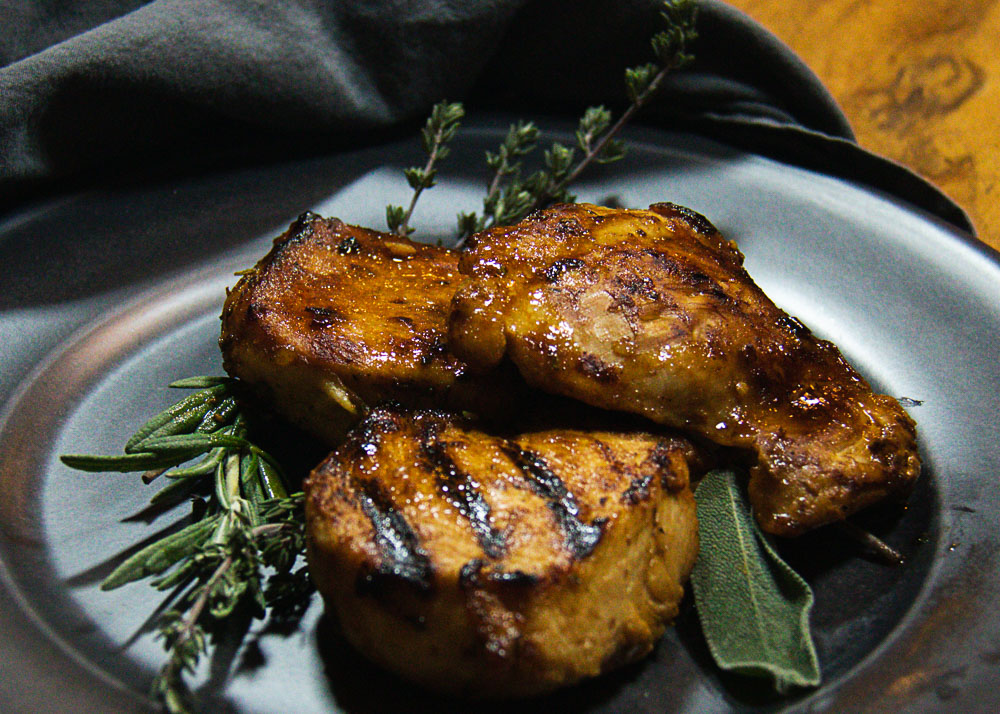
I love this herb grilled chicken marinade recipe. (It’s my go-to grilled chicken dish to add to any party.) The meat is flavorful with the taste of fresh herbs. Grilling adds even more flavor and makes these chicken pieces look so impressive. And even better, the chicken is super healthy.
This grilled chicken is so easy to prepare and tastes fabulous. A sure winner for a dish to impress.
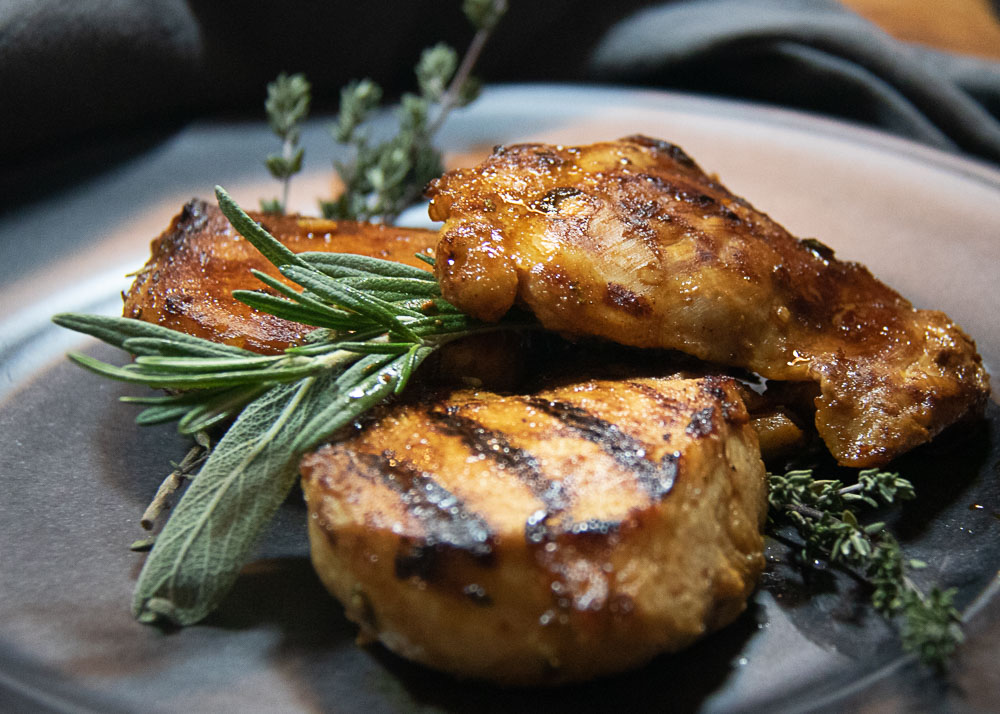
How to Figure Out Chicken Amounts
The rule of thumb is 4-6 ounces of cooked chicken which translates into about 10 ounces of uncooked (boneless) chicken meat. The least expensive option is to buy a whole chicken and break it down into pieces. A whole chicken will feed 4-6 adults.
Chicken thighs—plan on 1 thigh per person for small to average eaters and 2 for big eaters. (4 bone-in chicken thighs weigh about 1-1/2 pounds or 4 boneless, skinless chicken thighs weigh about 1 pound)
Chicken breasts—since chicken breasts vary greatly by size and weight, go by the 10 ounces of raw chicken per person, or plan on 1-1-1/2 servings per breast half. Divide the breast meat into pieces before cooking for the best presentation. (2 bone-in average chicken breasts weigh about 1 pound, or 3 average-size boneless, skinless chicken breast weigh about 1 pound)
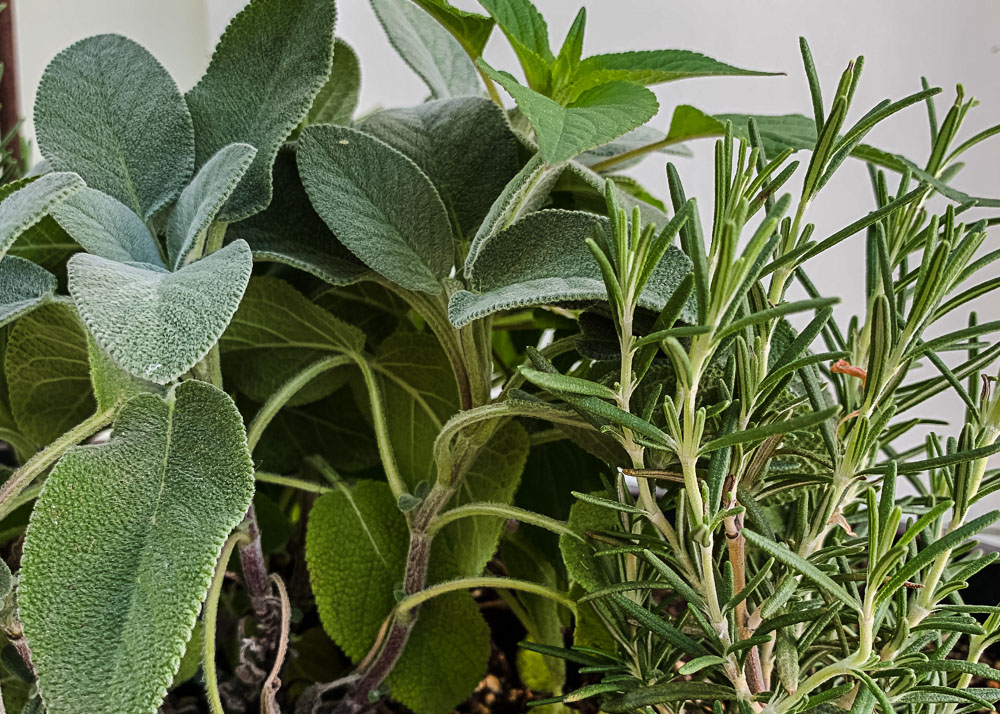
What Herbs to Use for Herb Grilled Chicken Marinade
Rosemary has a woodsy taste that acts as a counterpoint to the taste of the chicken. This herb is easily identified by the pine-like needles and branches. Stripe the leaves from the stems and chopped finely. Fresh rosemary pairs wonderfully with parsley, mint, and chives. Dried rosemary is great with oregano, thyme, and sage.
Thyme goes hand in hand with all poultry. The small delicate leaves are assertive enough to add an earthy note to any chicken dish. Fresh thyme goes with basil and parsley. Dried thyme blends with rosemary and oregano.
Sage has slender, dusty green-colored leaves with a savory, sweet and sour taste. The flavor is assertive so don’t overuse it. The fresh leaves are wonderful for using as a garnish, pair it with savory, parsley, and thyme. Dried sage is the classic Thanksgiving taste.r
Marjoram is a cousin of oregano with citrus and woodsy taste, but without the spicy note that comes from oregano. Fresh marjoram should be added just before serving to preserve the delicate taste but pairs well with parsley and basil. Dried marjoram is best used in marinades.
Bay Leaves are usually found as a dried herb, but the flavor adds a note to slow-cooked dishes. Add a couple of bay leaves to soups or sauces and the flavor adds a wonderful taste to chicken. Bay leaves complement thyme, marjoram, and oregano.
Herbes de Provence is a classic herb blend from the Provence area of France. It usually contains rosemary, thyme, oregano, marjoram, and savory. Adding a teaspoon to the marinade rounds out the fresh hers nicely.
And Spices Too
Paprika is made from mild sweet peppers, which adds bright red color and a hint of mild flavor to the chicken.
Cayenne comes from a long thin red pepper and adds a spicy kick. Even if you don’t like spicy flavors, cayenne is great to use in all sorts of dishes. Use as an accent in dishes.
Turmeric is a relative of ginger that adds golden color to any dish as well as an earthy flavor with a hint of pepper. Remember to be careful as turmeric will stain surfaces like cloth and countertops.
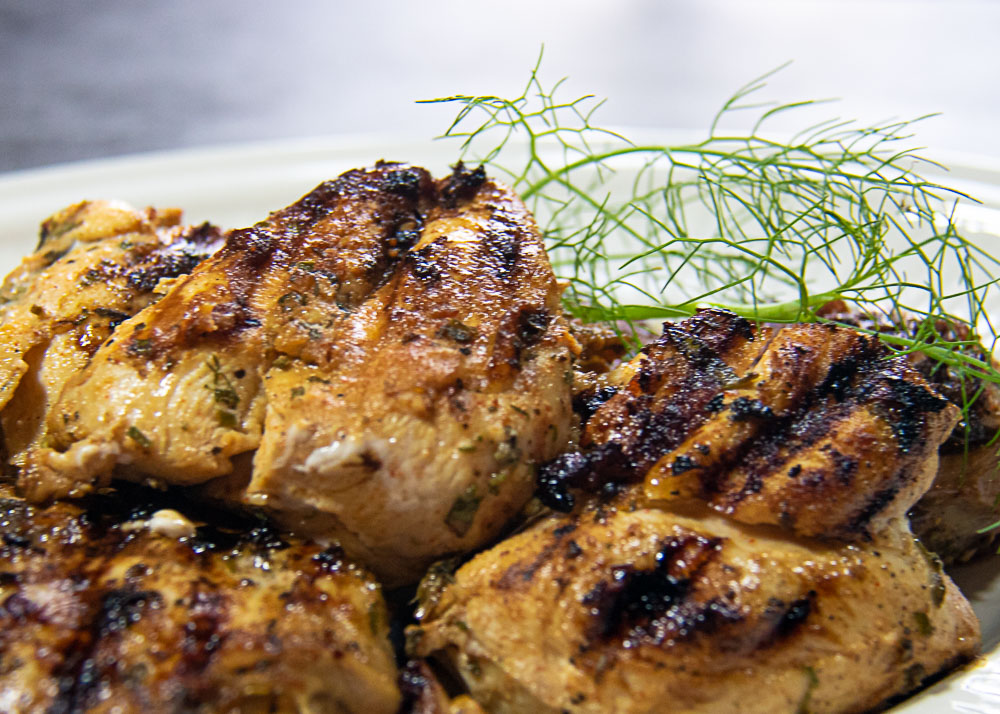
All About Marinades and Marinating
Just a note so you will sound extra smart. The word marinade refers to the mixture. The word marinate refers to the process of seasoning, flavoring, and tenderizing meat. So now you know how to use the terms correctly.
Marinades usually contain sugar, salt, and acid. All these components help break down the muscle fibers (this is also the benefit of brining). But keep meat too long in a marinade move beyond tenderizing the meat proteins and changes the meat into a mushy, stringy mess as well as causing the muscle proteins to tighten, which actually toughens the meat.
Marinades not only flavor and tenderize meat. But another benefit of marinating meats is the marinade becomes the first thing to hit the pan when you cook and this gives a burst of flavor when the chicken hits your tastebuds. Marinades add surface flavors and cooking with high heat (grilling, pan-frying, or roasting) caramelize the sugars in the marinade to create a fabulous surface crust for lack of a better word.
Marinade Ingredients
Acid adds flavor but too long will affect the surface texture and make the meat stringy and dry as opposed to sealing in moisture. 6-12 hours is the sweet spot for marinating large chicken pieces. The thinner pieces and boneless, skinless pieces should process on the lower side as opposed to large chunks of meat or bone-in, skin-on pieces.
- Acidic ingredients, like vinegar, lemon juice, wine, and apple juice will denature the meat proteins and traps the moisture into the muscle fibers.
- Enzymatic ingredients, pineapple, guava Asian pear, ginger will break down the muscle fibers and connective tissue which tenderizes the meat.
- Dairy-based ingredients, especially yogurt and buttermilk are technically acidic, but the lactic acid will more gently affect the muscle tissue than the stronger acidic ingredients.
Oil (and fat) will not penetrate the surface of the meat, but they act a binder for the marinade ingredients and coat the surface of the meat when it is time to cook.
Sugars, whether in the form of white or brown sugar, honey agave, syrup, Demerara sugar, corn syrup, etc all can be a component in marinades. The sweetener will help tenderize the meat and add flavor and caramelization when the meat is cooked.
Salt (the ratio to remember is no more than 1 tablespoon per cup of liquid) will loosen muscle fibers and penetrate a little into the meat. It is the combination of acid, salt, and sugar that works the magic in a marinade.
Other flavors like garlic, herbs, spices, mustard, etc all bring nuances to the marinade and can change the flavor profile from classic barbecue, to jerk, Greek, Mediterranean, Asian depending on the ingredients.
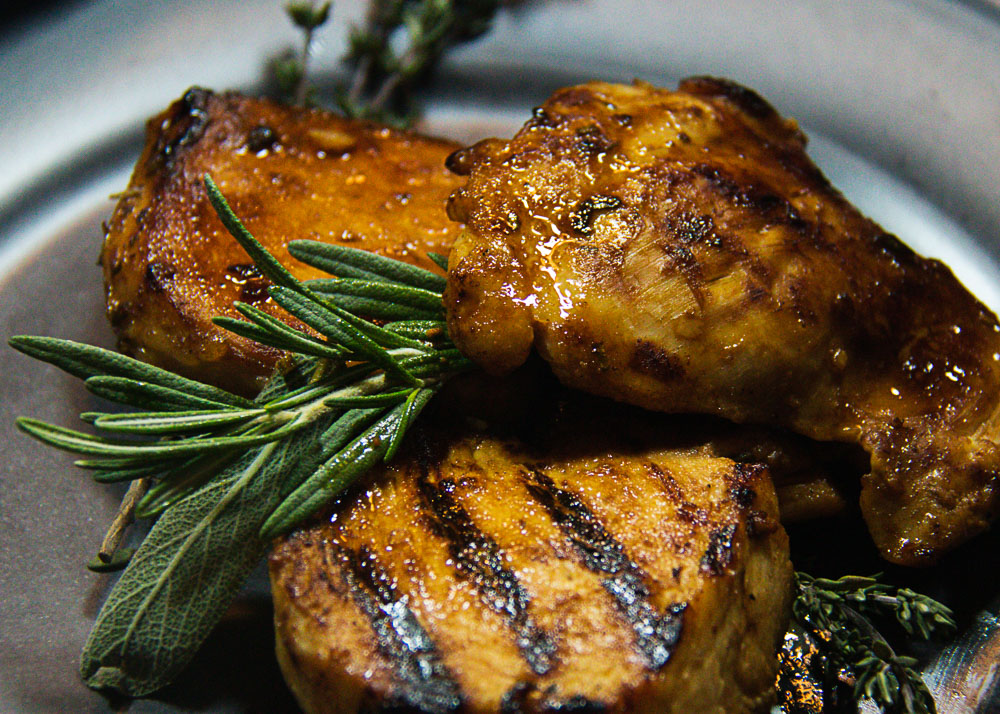
How long to Marinate Chicken for Herb Grilled Chicken Marinade
This depends on the cut and size of the pieces as well as whether the pieces are bone-in or boneless. Even marinading chicken for even 20 minutes will make a difference in the meat. Follow this handy timetable for super flavorful chicken. I like to use zip-close bags to marinate food. So I can easily turn the meat in the refrigerator so all the nooks and crannies are covered.
Marinating Chicken Timetable
- Whole bird— 4 hours minimum, 16 hours maximum
- Skin on, bone in chicken breast— 2 hours minimum, 12 hours maximum
- Chicken quarters and bone in thighs— 2 hours minimum, 12 hours maximum
- Skinless, boneless chicken breasts and thighs— 30 minutes minimum, 8 hours maximum
Make sure you discard the marinade after you remove the meat from the bag. (Or you can boil in for at least 5 minutes to make it safe to use as a sauce.) Lightly pat any excess marinade off the surface of the chicken so the meat can sear as soon as it touches the grill.
Print
Herb Grilled Chicken Marinade
- Prep Time: 10 minutes
- Cook Time: 30 minutes
- Total Time: 13 hours
- Yield: 8–10 servings 1x
- Category: Entree
- Method: Grilled
- Cuisine: American
Description
This herb grilled chicken marinade is so easy to prepare and tastes fabulous. A sure winner for a dish to impress.
Ingredients
- 4–5 pounds of chicken parts, chicken thighs, breasts, drumsticks, etc.
- 6 sprigs of fresh rosemary, minced (about 2 tablespoons)
- 6 sage leaves, minced (about 1 heaping tablespoon)
- 5 cloves garlic, minced
- 4 sprigs thyme, leaves removed and coarsely chopped (about 1 tablespoon)
- 2/3 cup red wine vinegar
- 2 tablespoons lemon juice
- 1/3 cup honey
- 1/3 cup Dijon mustard
- 1/3 cup vegetable oil
- 1–1/2 tablespoons kosher salt
- 1 teaspoon sweet paprika
- 1/4 teaspoon cayenne pepper
- dash of turmeric
Instructions
- Finely mince the rosemary, sage, and garlic cloves and remove the thyme leaves from the sprigs.
- Mix together the remaining marinade ingredients and transfer the whole mixture to a gallon-sized zip-close bag.
- Add the chicken pieces to the bag and make sure all the pieces are covered with the marinade liquid.
- Refrigerate the chicken for 6-12 hours.
- Remove the chicken pieces from the marinade and pat dry. Discard the used marinade.
- Preheat a grill to high heat (about 375° F – 400° F) Arrange the chicken pieces on the grill grate, (skin side down) for 6-8 minutes. Rotate the chicken pieces 45° and continue grilling for 6-8 minutes more to create beautiful grill marks.
- Turn the chicken pieces over and continue cooking for 8-10 minutes more or until the internal temperature reaches 158° F.
- Remove the herb grilled chicken to a a platter and let rest for 10 minutes to allow the juices to redistribute within the meat.
- Serve and enjoy.
Notes
You can prepare the marinade the day before and add the chicken pieces at the appropriate time for the size and type of chicken pieces.
Dishes to Serve with Herb Grilled Chicken Marinade
This is a lovely entree that is awesome served with other barbequed meats. Or you can take the meal a different direction and serve it with any of these side dishes.


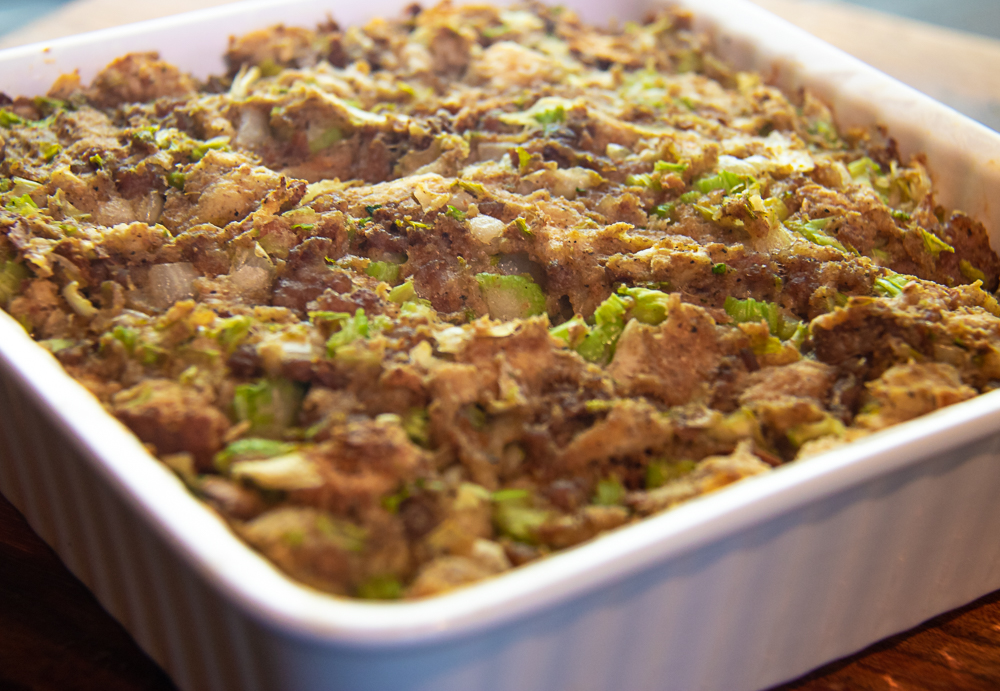
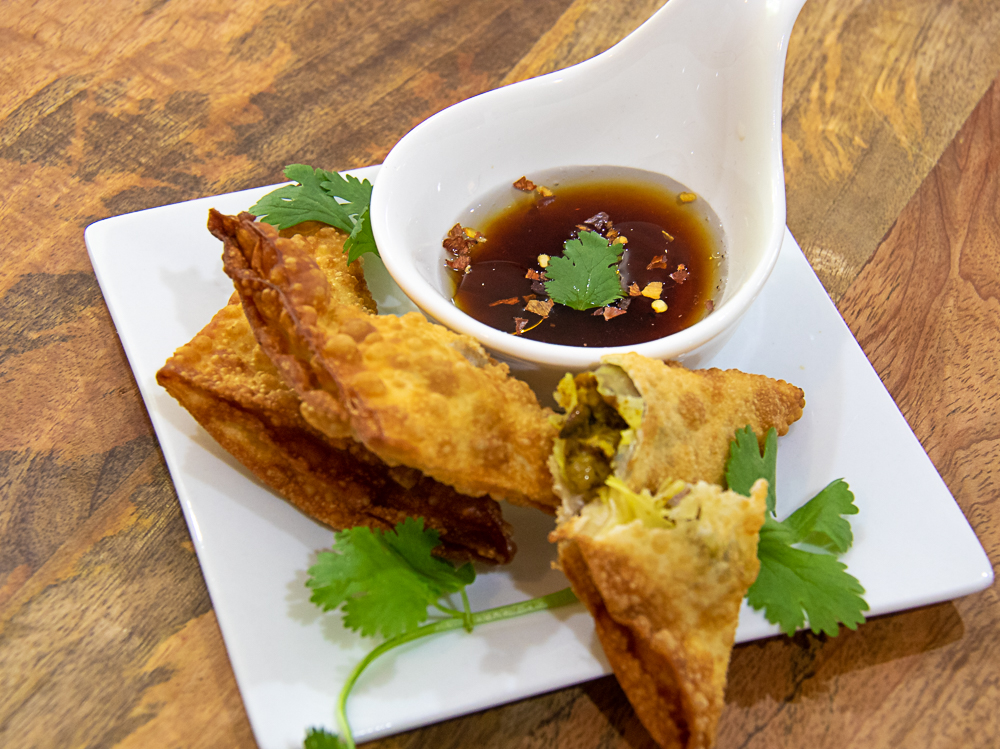
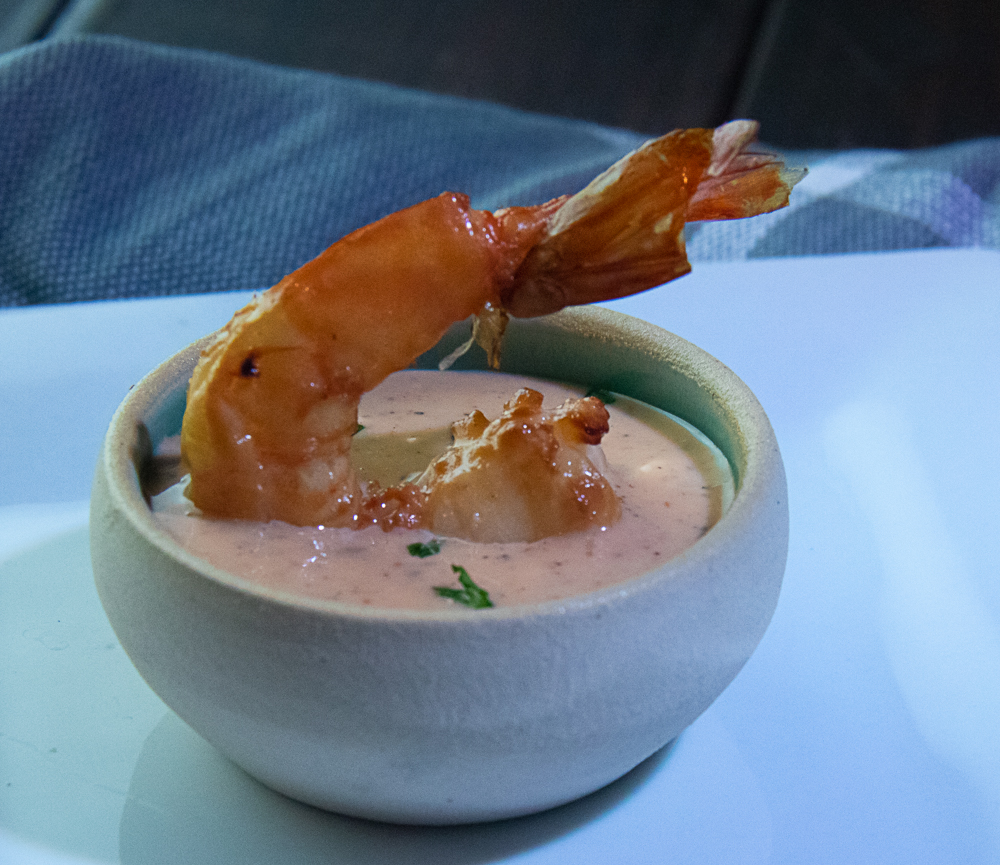

Leave a Reply